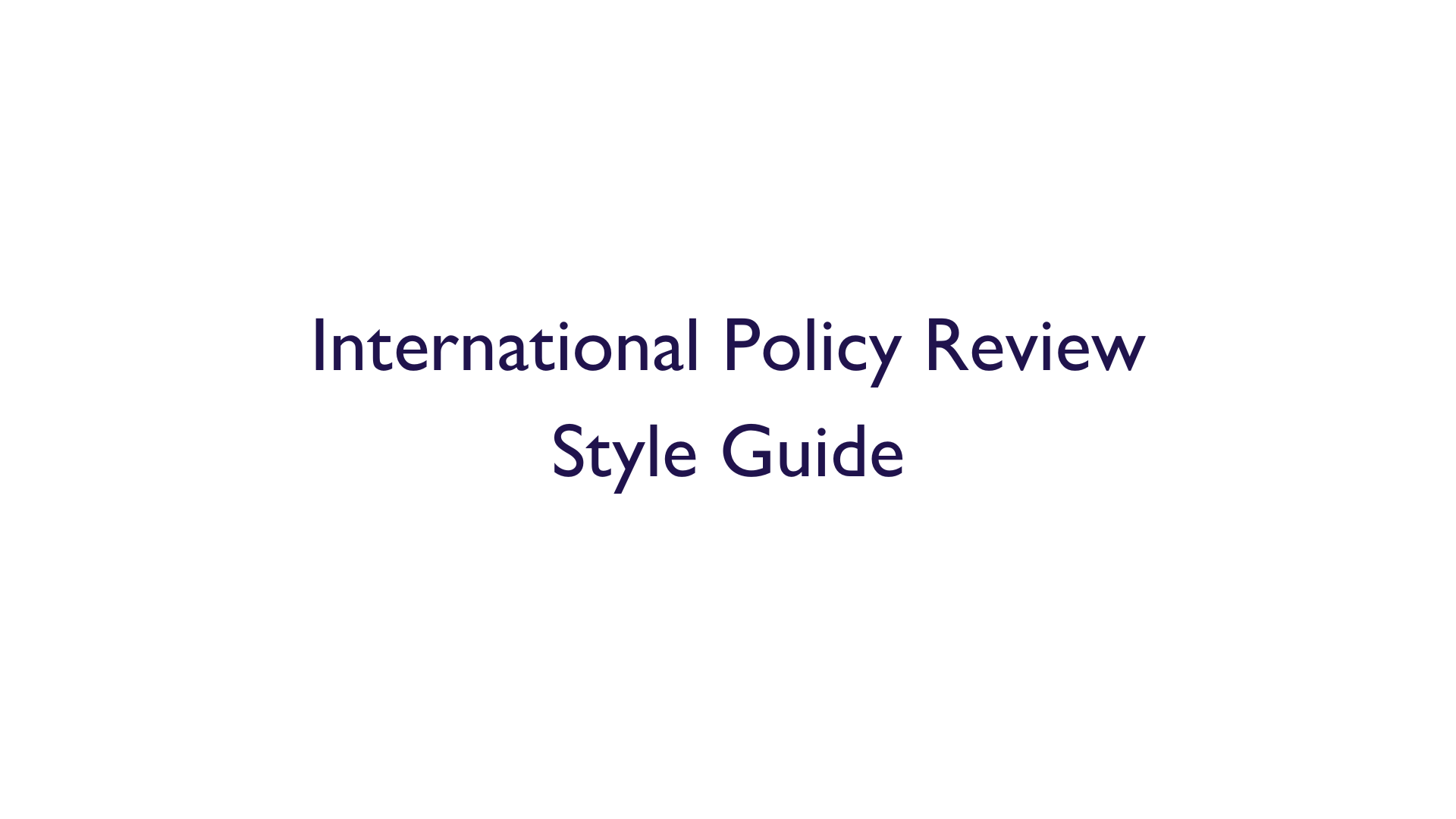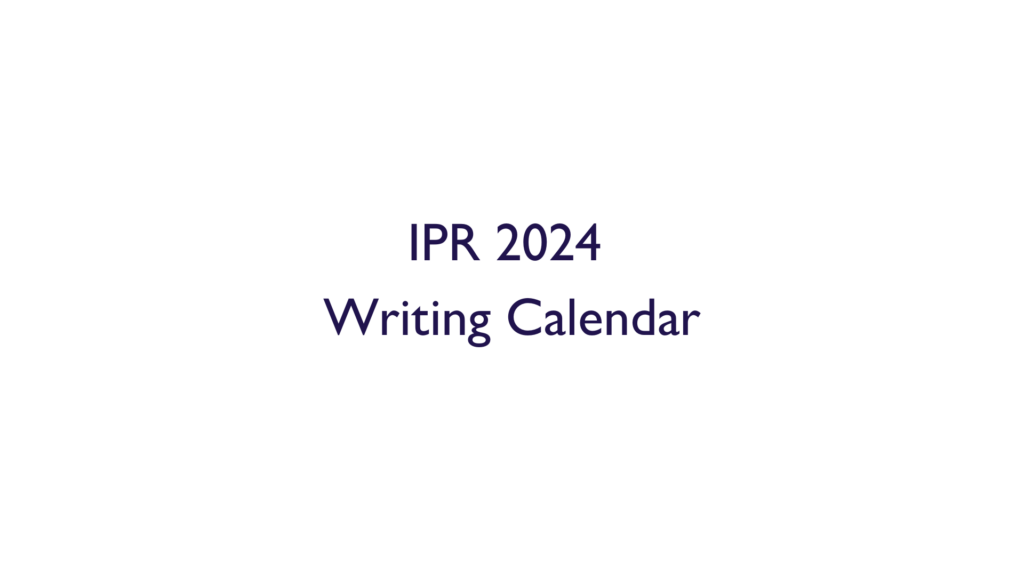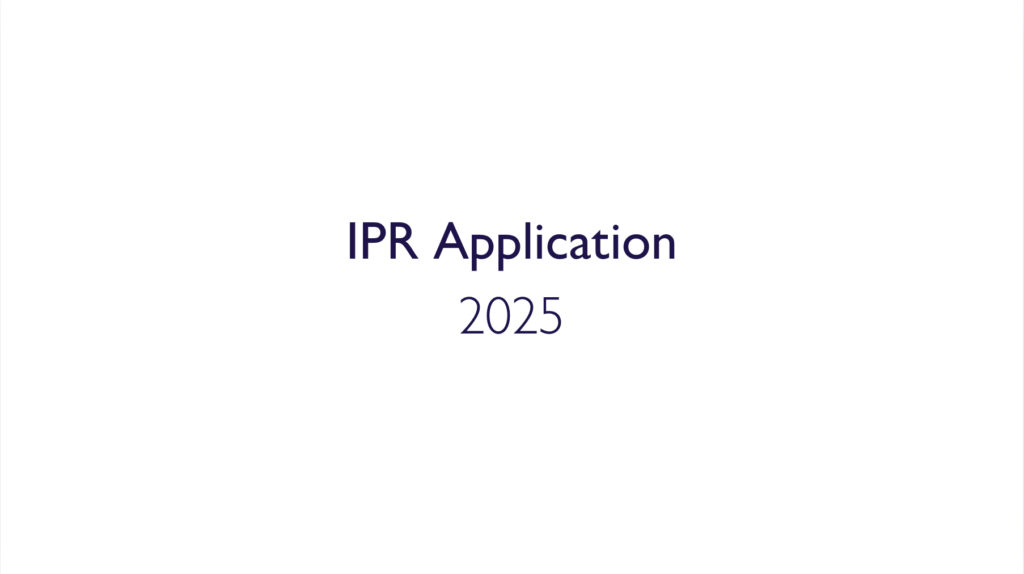
JOIN IPR
Become part of the IE International Policy Review team.
Joining the IE International Policy Review as a writer offers an unparalleled opportunity to develop and showcase your analytical and writing skills from the very beginning of your academic journey. Writers are empowered to critically engage with global issues, contribute to meaningful debates, and propose innovative policy solutions. Whether you’re looking to expand your academic portfolio or make a lasting impact on the social sciences, IPR provides the perfect platform to grow and excel.
WHAT MAKES IPR DIFFERENT
IMMEDIATE
INVOLVEMENT
You can become a writer starting from your first semester at IE, with no membership needed.
EDITORIAL OPPORTUNITIES
You can become an editor from your second year of studying at IE, with no membership needed.
PROFESSIONAL TRAINING
You will be trained by professionals in the field on how to conduct thorough, high-quality research. You will receive a certificate to enhance your CV.
NETWORKING OPPORTUNITIES
Incredible opportunities to network with professionals and peers.
PUBLICATION &
PANNELS
You will have the chance to be published and host panels and discussions based on your research topics.
EUROPEAN
EXPOSURE
You will also have the opportunity to publish in the reviews of our partner universities, gaining recognition across Europe.
BECOME A WRITER
The IE International Policy Review offers you the opportunity to choose between two categories of articles:
Academic Paper
This type of article is a comprehensive academic paper featured in our journal once per semester. When you apply, you will have the opportunity to propose a research topic or choose from the topics we suggest. Once the topic is selected, you will be paired with an editor and receive guidance on adhering to the IE International Policy Review standards for writing and quoting.
- Word Count: Minimum 2500 words, suggested maximum 9500 words.
- Adaptation: You can adapt papers you previously wrote for other classes to meet the standards of the review.
- Policy Focus: Approximately one-third of the paper should address an innovative or past policy tackling the issue you are analyzing.
- Co-Publishing: You will have the chance to co-publish your article with our partner universities, amplifying the impact and reach of your work.
Policy of the Month
Not ready to commit to a full article but eager to grow your skills? This is the perfect option for you!
Write two short articles (500–1,500 words each) over the semester on policies of your choice. Flexible and impactful – make your voice heard!
This category is published on the IE International Policy Review media channels monthly. The best three articles will be recognized and awarded, with publication in our journal released once per semester.
- Focus: Analyze current world issues, commenting on their development and proposing solutions from a policy-making perspective.
- Topic Selection: You can choose your favorite policy proposal, your own world issue to analyze, or select from the topics we propose.
For information regarding the writing process, read the IPR Student Guidelines, page 7.
BECOME AN EDITOR
As an Editor, you get the unique opportunity to be involved and recognized as someone with a certain degree of experience in writing.
Training
You will be trained to guide your writer through the writing process, providing
suggestions and comments.
Category Choice
You will be able to choose the category you’d like to edit, but final assignments
will be based on availability and the number of writers.
Impact
This role allows you to have a valuable impact, enhance your editing and writing skills, and hold a highly valued position on your CV with a lesser amount of effort.
Collaborations
You will also get the chance to edit the work of writers from our network
universities, providing an opportunity to network with students across Europe.
For information regarding the editor’s role and expectations as well as the editing process, read the IPR Student Guidelines, pages 9-11.
COLLABORATIONS
Trinity Law Review
The collaboration strives to produce high level articles that provide new outlooks on prominent issues within EU Law. Participants are strongly encouraged to research and prepare detailed policy proposals that critically assess the inefficiencies of current legal frameworks. By the end of the collaboration, every writer shall produce a short article (website blog post) which will be published on the websites of both the IE International Policy Review and the Trinity College Law Review. The contribution will equally be provided in print in the IE International Policy Review.
Given the advanced nature of the collaboration, participation is extremely competitive. All accepted participants are expected to meet all deadlines and produce an article by the end of the writing period.
Participants may either apply for a writing position or an editor position through the designated application form.
Theme: EU Law
Word Count: Min. 1500 – Max. 3000
For more detailed guidelines, read pages 90-102.
NYU Law & Policy
Enjoy the freedom to explore any topic that piques your interest. An ideal opportunity to dive deep into what excites you most!
Theme: International Law
Word Count: Min. 2200 – Max. 4500
For more detailed guidelines, read pages 79-89.
Bocconi Advocacy & Litigation
The collaboration strives to create a series of workshops aimed at equipping students with dynamic writing and research skills that will adequately prepare them for the legal profession. Participants who are especially interested in putting their newly acquired skills into practice will be given the exclusive opportunity to be featured in the 2nd Edition of the 6th Publication of the IE International Policy Review.
Once having applied and been accepted in the collaboration, students can begin attending the exclusive workshops provided in conjunction by the two universities. A total of 3 writing seminars will be held in this series.
Students have two options when enrolling for this collaboration:
- Simple attendance to the seminars: Students will be accepted on a rolling basis and be given exclusive access to the workshops. Participants MUST have applied through the application form and indicated their participation preference in order to gain access to the events.
- Participation preference: Simple attendance.
- Competitive publication process: Students will be given exclusive access to the workshops and be given the opportunity to be selected for publication at the end of the semester. Participants MUST have applied through the form, indicated their participation preference and provided a writing sample in order to be considered. If writers wish to be considered for publication, they must attend at least 2 of the 3 writing seminars.
- Participation preference: Competitive publication.
Theme: Competition Law or Antitrust
Word Count: Min. 1500 – Max. 3000
For more detailed guidelines, read pages 65-78.
Sciences Po x SDG Club
The Sundial Press is the largest and most active student media throughout the Sciences Po Paris network, based on the Reims campus. It is a bilingual publication that produces English and French content, which is published regularly in our quarterly print newspaper and throughout the academic year on their website.
As the 10th anniversary of the inauguration of the UN’s Sustainable Development Goals approaches, this collaboration aims to highlight the troubles and triumphs that each goal has faced since 2015, as well as shed light on some of the most inspiring projects arising as the 2030 Agenda enters the final half of the decade.
Theme: Sustainable Development Goals (SDGs)
Word Count: Min. 2200 – Max. 4500
For more detailed guidelines, read pages 35-58.
RESOURCES
Explore essential guides and tools designed to help aspiring editors and writers master the skills needed to excel within the IE International Policy Review team.
Click the images below to see the full documents.




